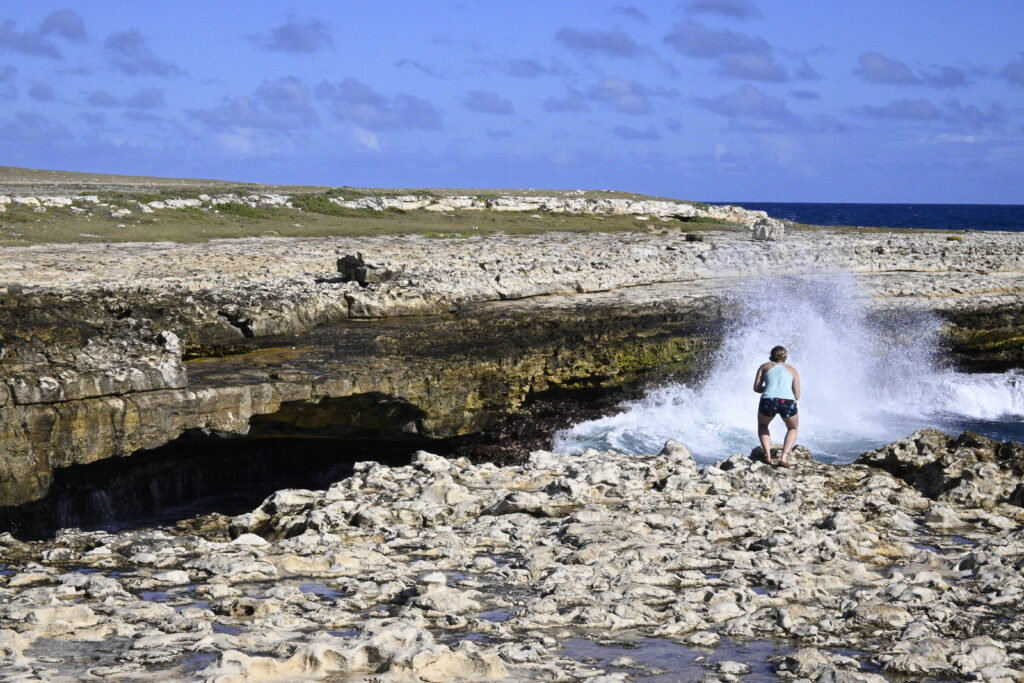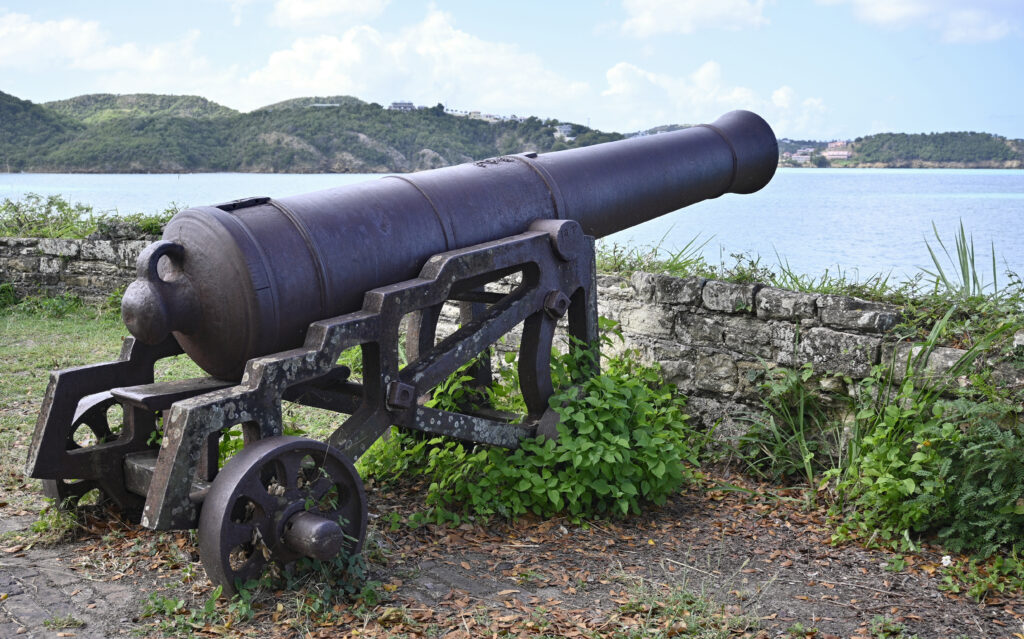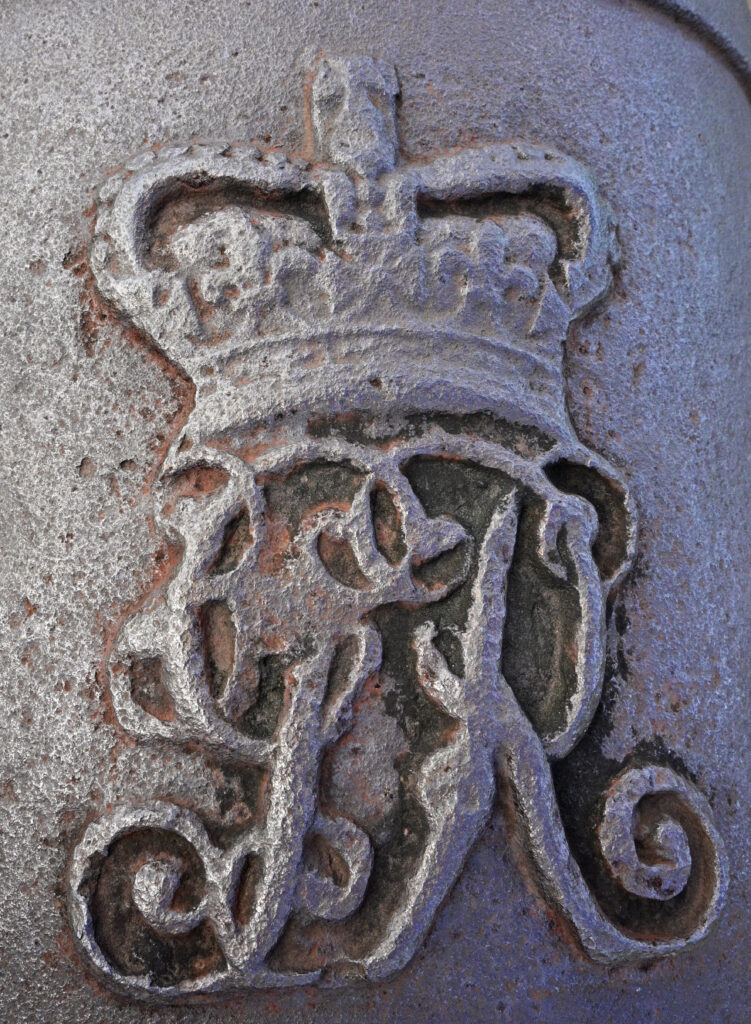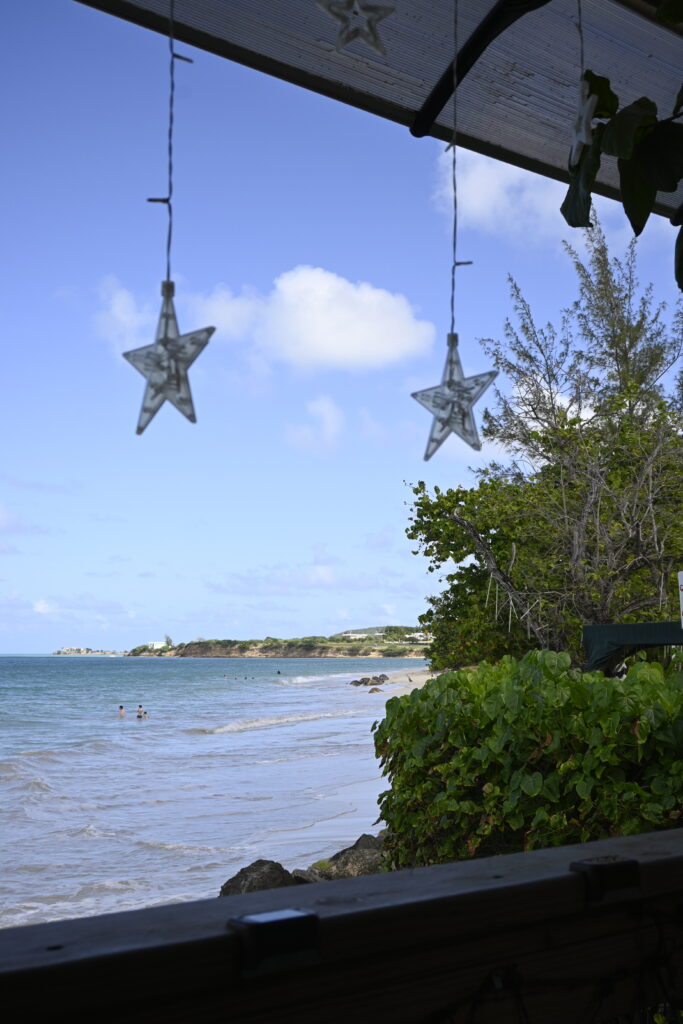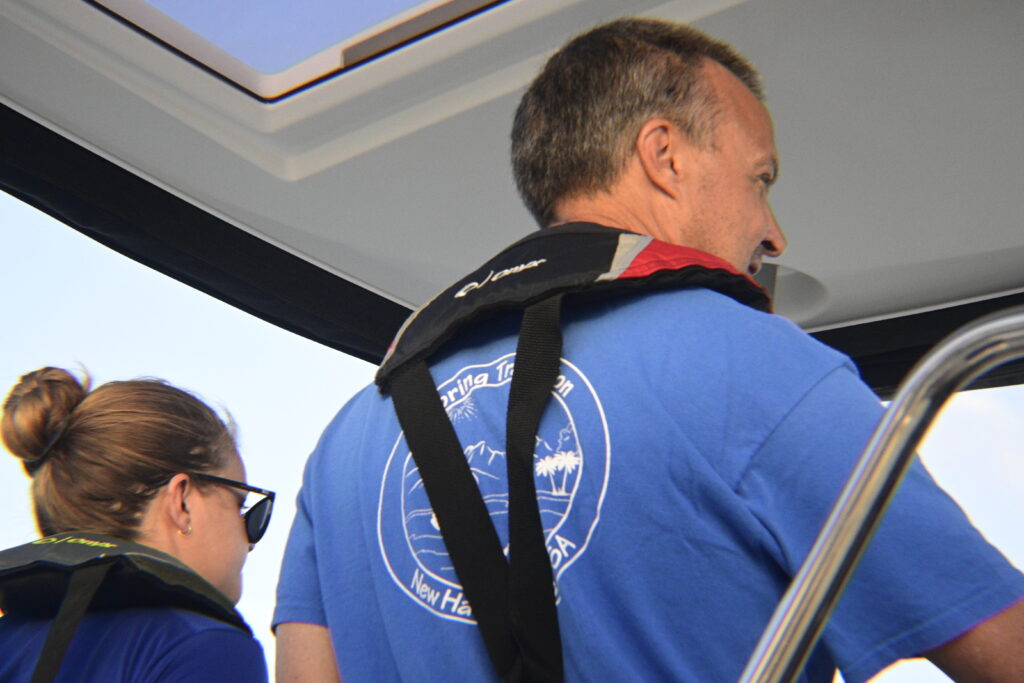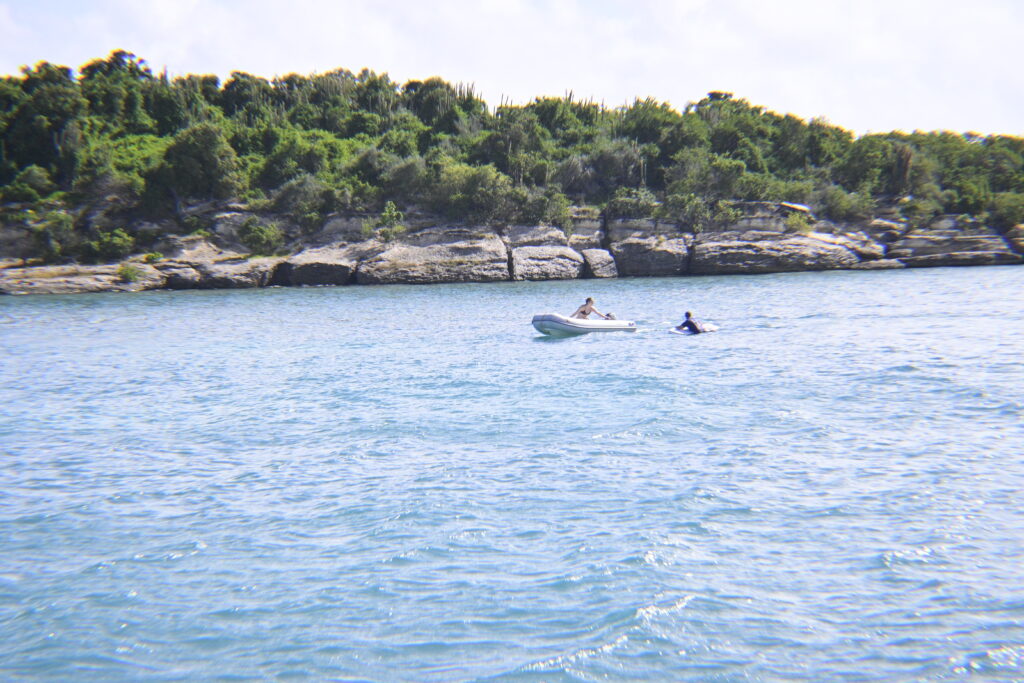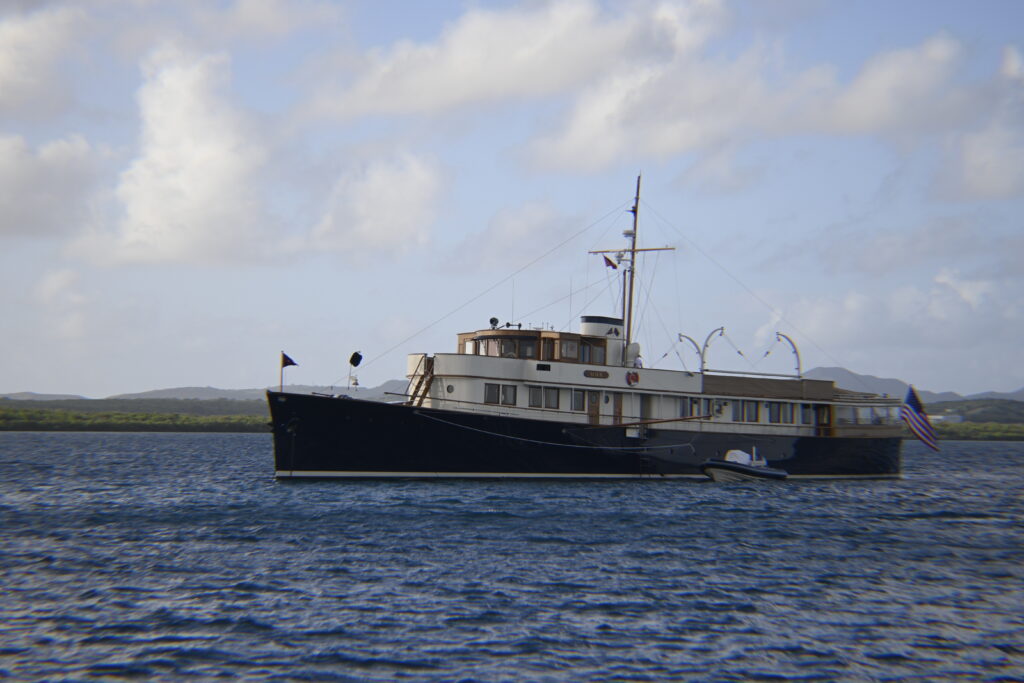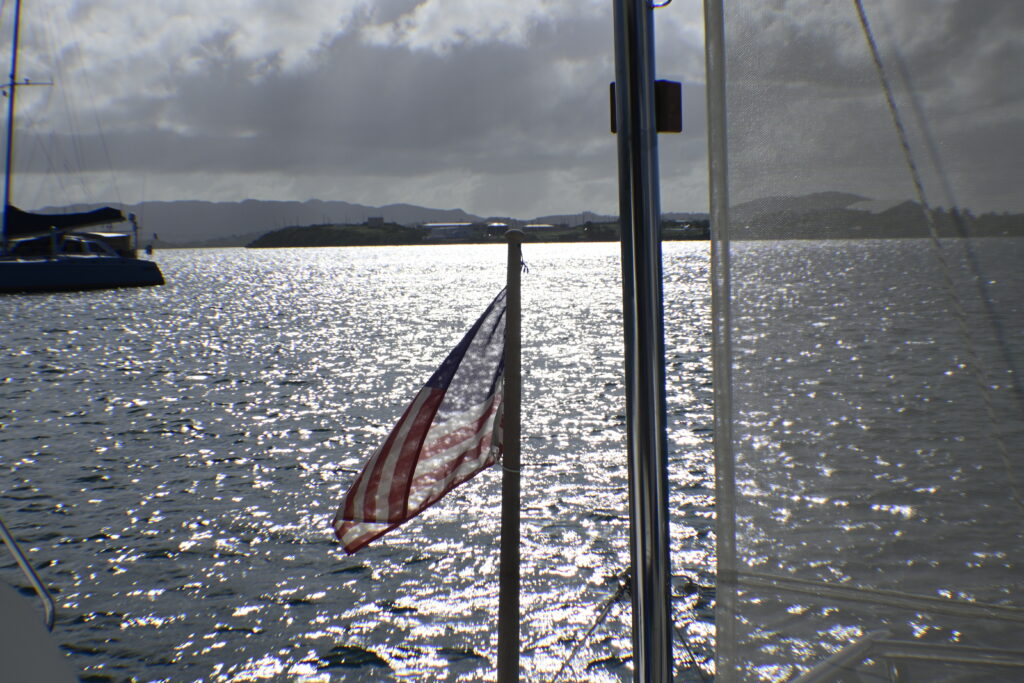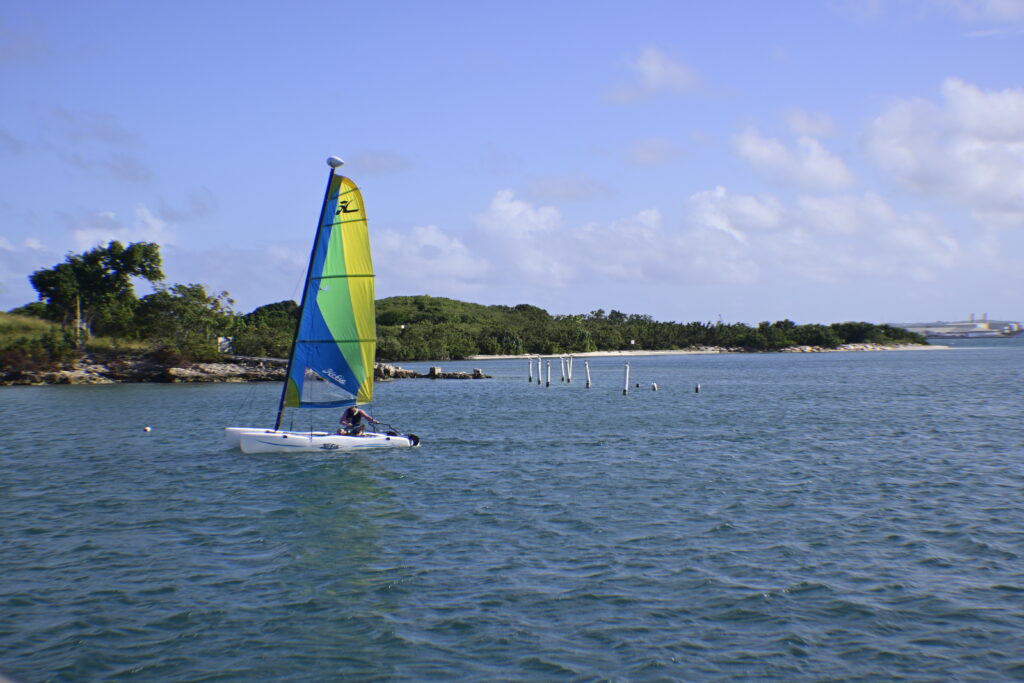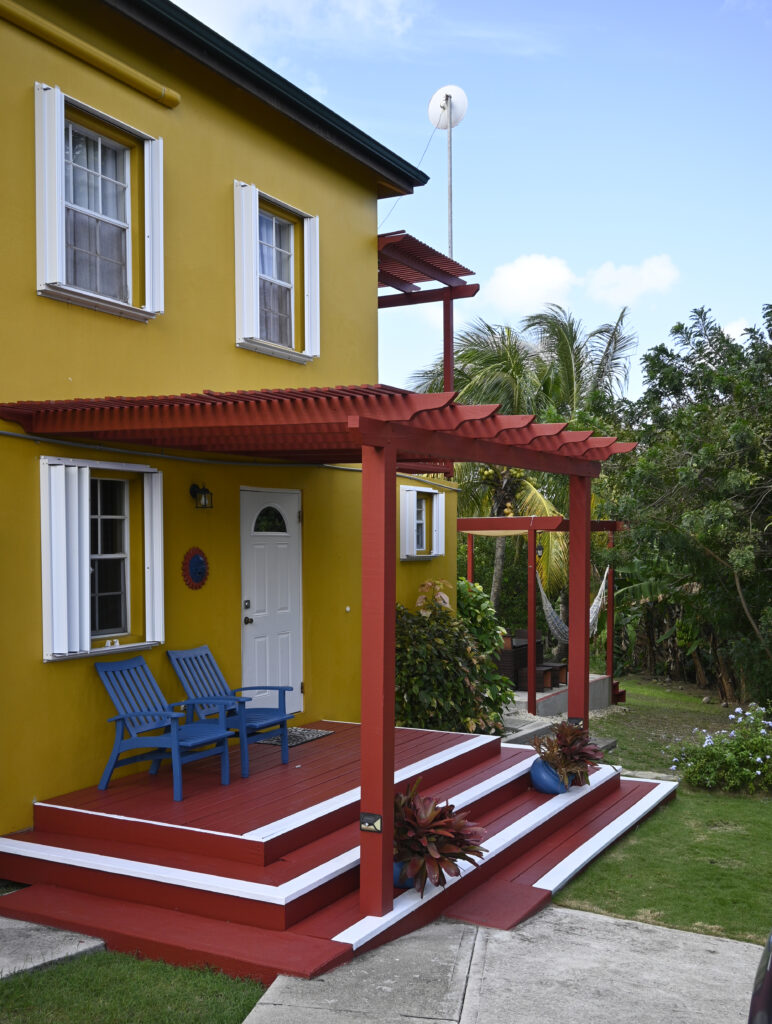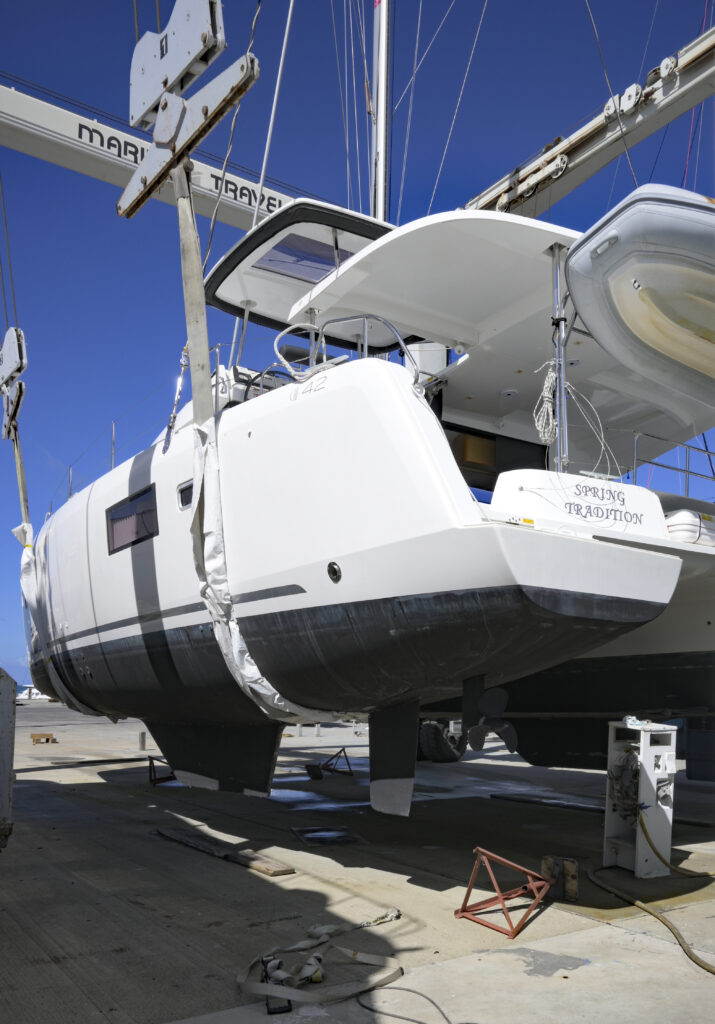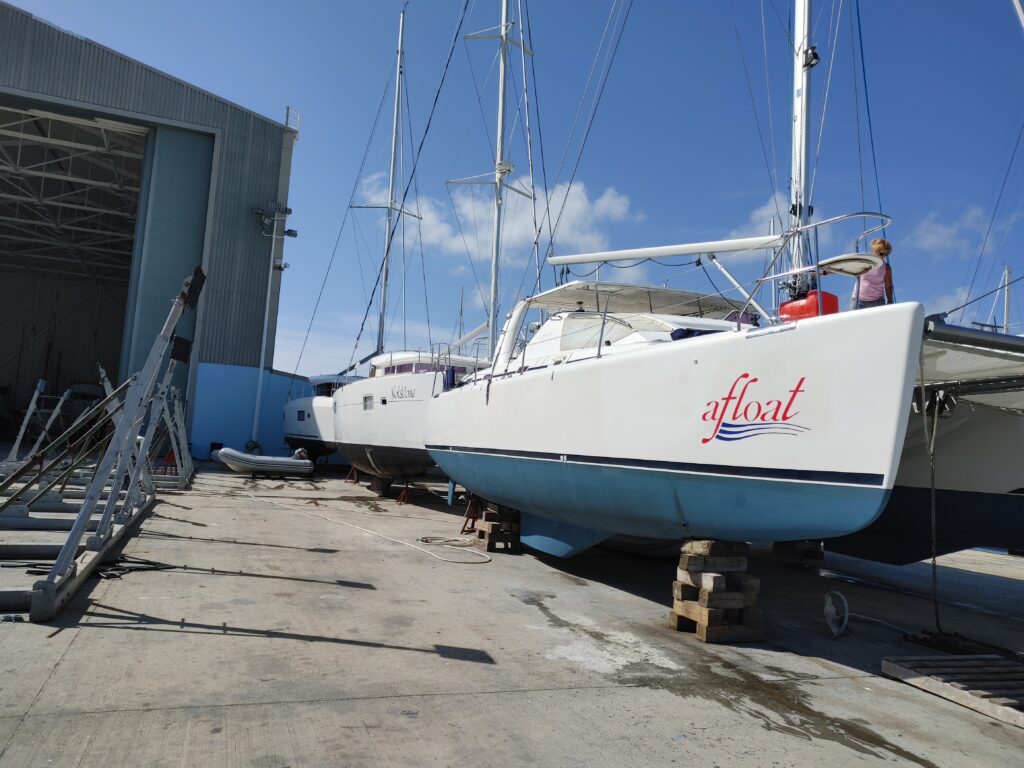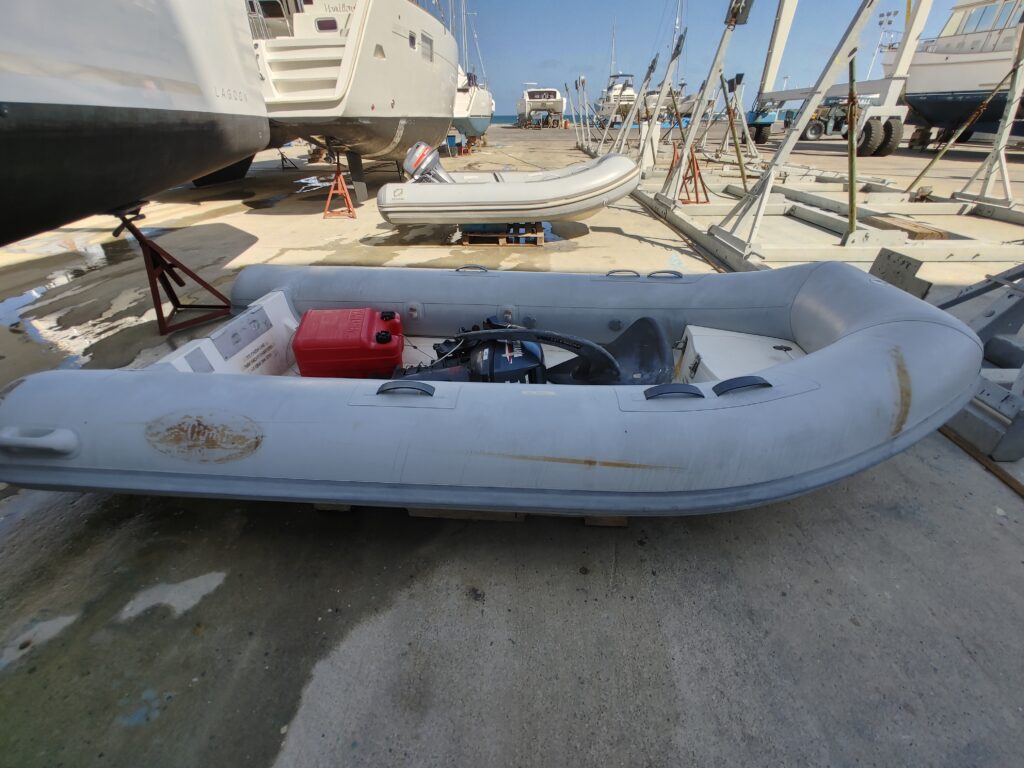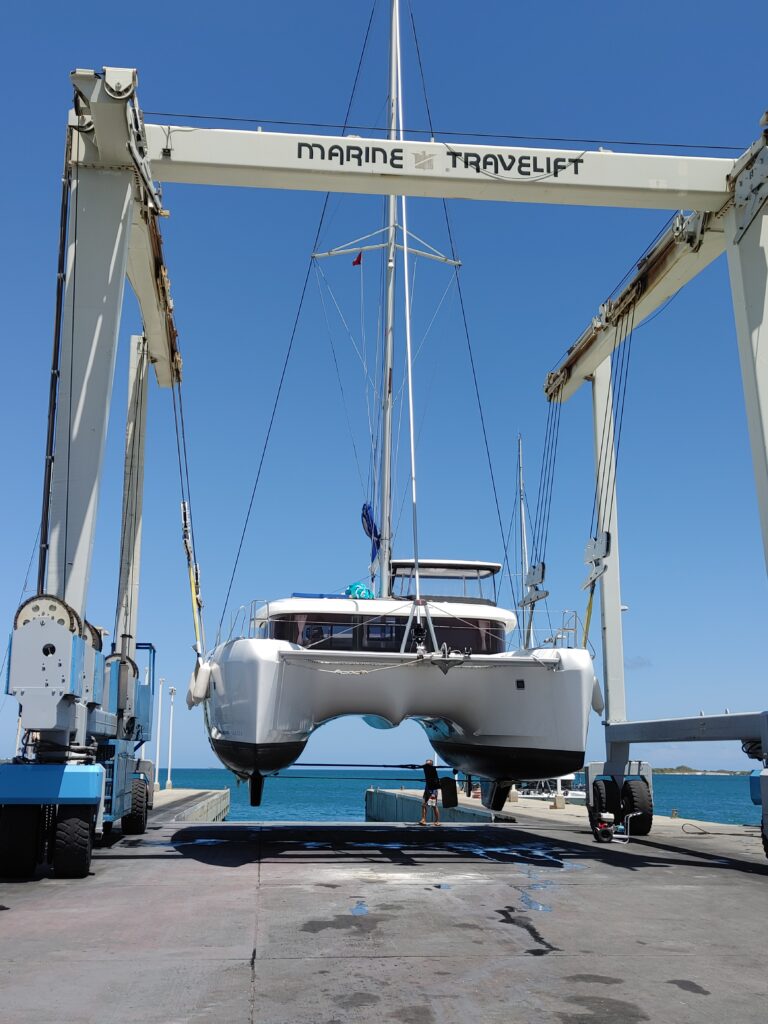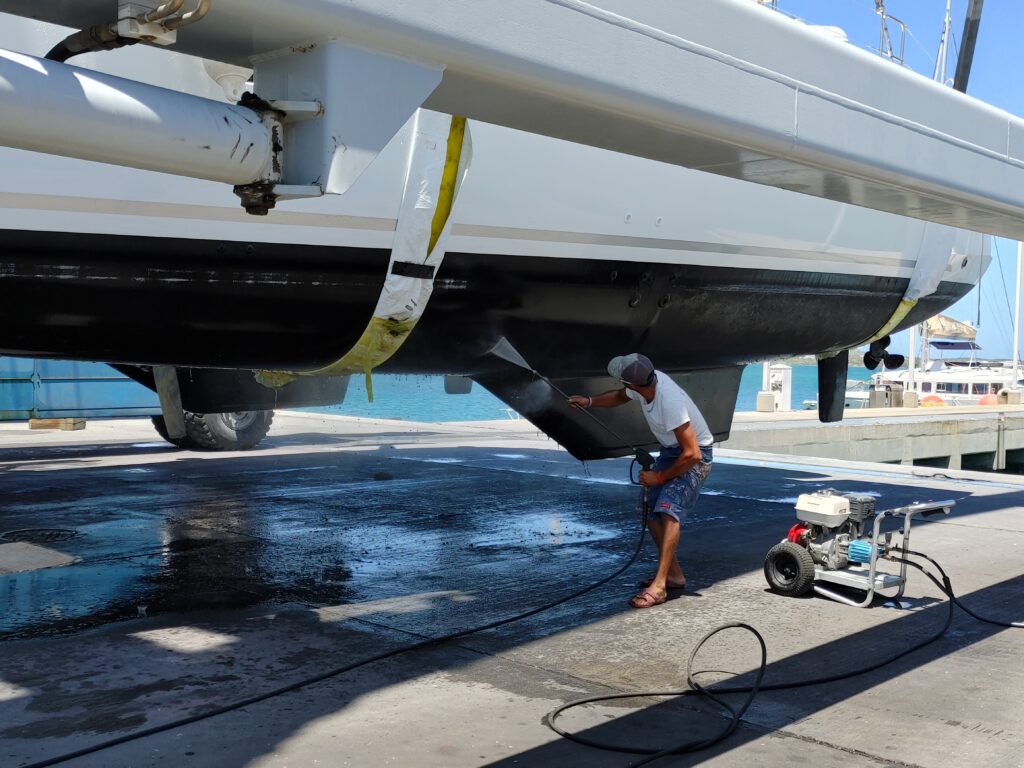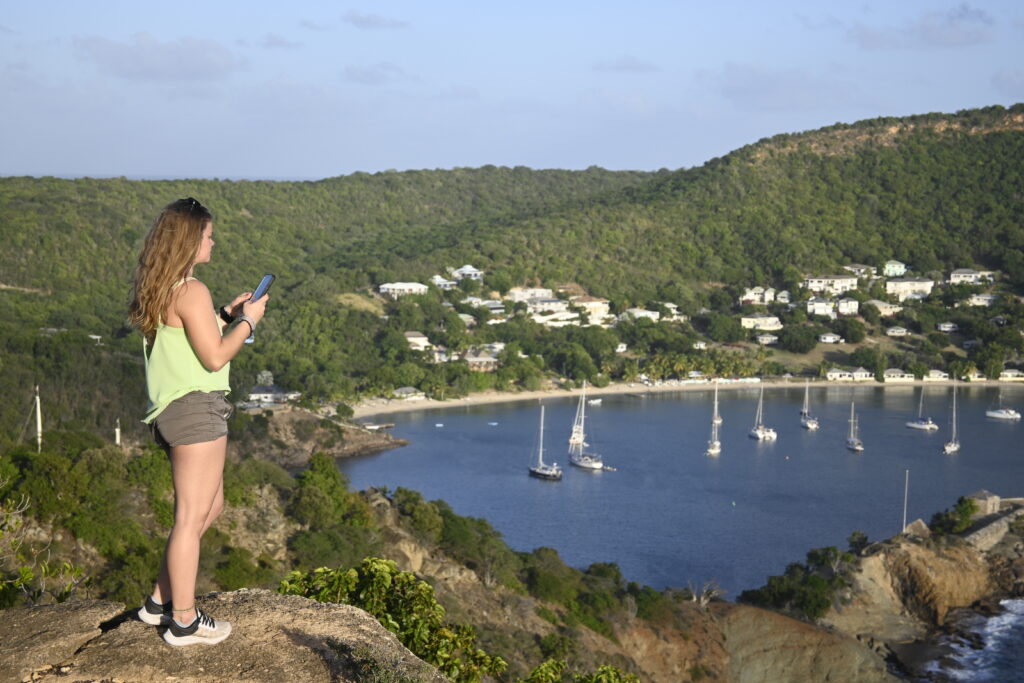
We took our dingy back into the Jolly Harbour Marina and piled into the car for the drive south to English Harbour. We wanted to walk on the Middle Ground trail before the sun set. This trail lies above Pigeon Beach to the north and English Harbour to the south. The views are fantastically beautiful. We were surprised that there were not more boats anchored in the two Harbours, as we had heard that the New Year’s Eve bash at Nelson’s Dockyard was “the place to be.” We chose not to move the boat there so that we didn’t have to get into the mayhem that often comes with drinking and crowds. We saw a group of goats way up on top of the trail, munching their dinner away. There were several young goats there, which are always adorable to see.
On the way down from the walk, we decided to exit via Pigeon Beach, which is located at the entrance to Falmouth Harbour. A destination wedding was taking place there next to beach-goers laying in the sand. We then walked along a road that took us into the center of Falmouth Harbour and searched for food. We didn’t want a large meal since we had a big lunch. Unfortunately the pizza place was closed. We ended up walking to Nelson’s Dockyard and were very confused. It was after 6p and the dockyard was fairly empty of people. We were able to walk around and show Kirsten this impressive site. It is a UNESCO world heritage site that has been restored. Typically there are shops and vendors at the entrance. That wasn’t the case this evening. Colored lights were strung along the trails, making the whole area sparkle magically. Many boats lined the dockyard waiting for the festivities to begin.
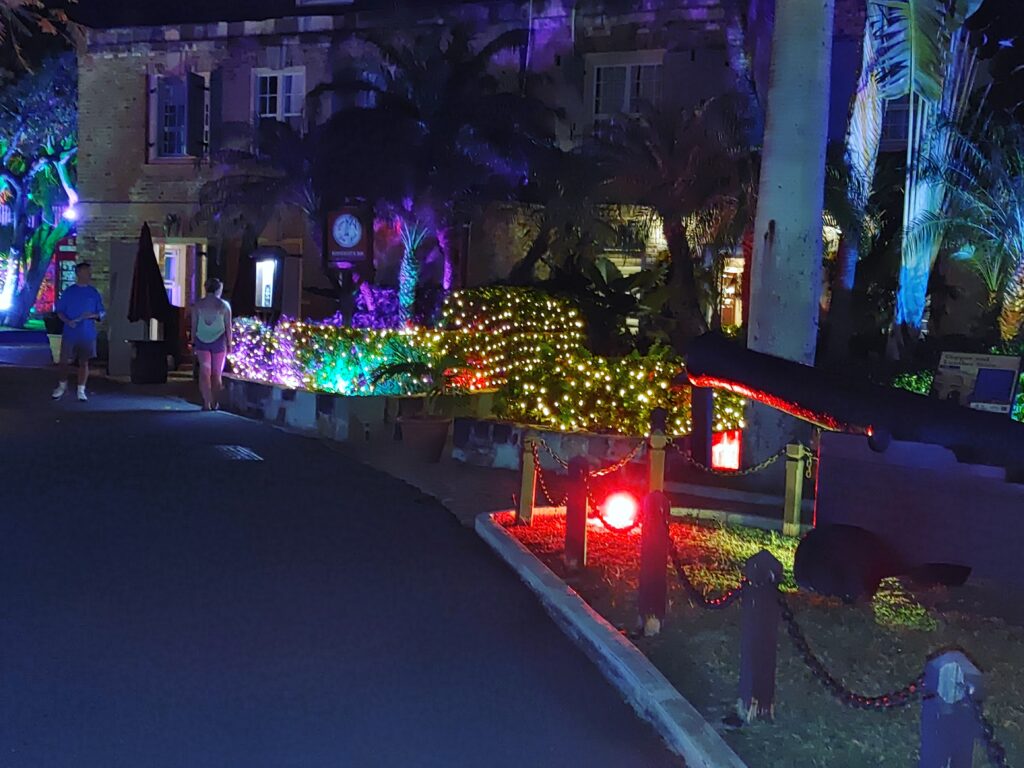
After walking around, we were hungry. The restaurants in the dockyard were serving fancy gala meals and we definitely were not dressed for that. So, we left the dockyard and found a small, Italian Street food restaurant along the road. We had what was similar to a calzone and ate on bar stools while watching people walk past. It hit the spot. It was still only about 7p so we decided to walk back to Falmouth to play some pool. After three games of pool, we started heading back to the dockyard and saw our friends in the bar next to where we were. We joined them for a drink.
Next, we all walked to the dockyard. The music and the drinking started by this point. We were dancing in the grass, which was a lot of fun. Celebrating with our new friends was such fun. It took us a long time to leave the parking lot after midnight. Steve was wide awake and drove us home safely. Getting in and out of the dingy was a challenge, as it usually is for me. And our dingy ride back to the boat was difficult because we couldn’t see very well. We had remembered to turn on the mast light as well as two lights in the forward cabins but we couldn’t see where the boats were in the water. Luckily we knew that there weren’t many obstacles between the Harbour entrance and our boat. The water was very calm at 3am with low winds blowing. It was actually a pleasant dingy ride back under the half moon and twinkling stars.

